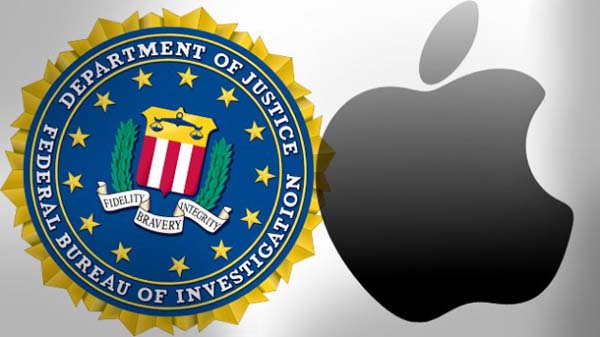March 13, 2016 | Online
Why the Apple vs FBI case should matter to you

You may have heard about the tension between Apple and the FBI. It centers on the iPhone of San Bernardino shooter Syed Rizwan Farook. The FBI wants to access its contents but needs Apple's help.
To access the phone, the FBI requires a password. However, the iOS 8 and iOS 9 have been designed to stop random passcode guessing. After three incorrect passcode inputs, you have to wait 60 seconds before trying again. More incorrect passcodes and the phone will freeze for 5 minutes. After 10 incorrect passcodes, all phone data will be wiped, making it useless to authorities.
To ensure the integrity of any evidence on the phone, the FBI wants Apple to create a way to disable the incorrect-passcode entry delay and the data-wipe safeguard. The FBI can then run a program to attempt an endless variety of passcodes in order to get into the phone.
Apple says it won't do it, because then the security of information on all iPhones will be undermined.
"The United States government has demanded that Apple take an unprecedented step which threatens the security of our customers. We oppose this order, which has implications far beyond the legal case at hand," Apple's CEO, Tim Cook, said. "The implications of the government's demands are chilling. If the government can use the All Writs Act to make it easier to unlock your iPhone, it would have the power to reach into anyone's device to capture their data."
The case has already gone to court, and in February a judge ordered that Apple had to help the FBI. Apple refused, and a week later filed a 65-page motion to vacate the court order.
This month, the US Government shot back and has filed its own arguments with the court. It will be a loud and interesting legal fight, for sure.
But why should it matter for the rest of us?
“Once that technology exists, it could get into the wrong hands, which could lead to cyber-attacks or hacking that essentially puts all of us at risk," explained Professor Amy Sepinwall.
That means terrorists and cyber-thieves could access someone's private information, using it for blackmail or harassment, or to discover the physical location of soldiers or law enforcement.
And those doing the hacking are not always the "bad guys." A few years ago the US government landed in hot water for spying on its allies. What would stop US spies from hacking into German or UK officials' phones if they could? And what would stop the Russian government from doing the same to the United States?
Just think, everything you did on your iPhone could be scooped up by prying eyes. Embarrassing pics could be stolen. Personal information leaked. Big brother could check to see what you are writing or where you happen to be at any given moment. Can the government be trusted with that kind of power?
On the flip side: what if a single act of terrorism could be stopped, or a potential terrorist arrested ... but only if the authorities had access to the contents of a phone?
It will be interesting to see how this case is resolved, and the ramifications it has on our lives.
Site Reviews
93 Bel Ami Online [visit]91 Corbin Fisher [visit]
89 ASGmax [visit]
88 Cocky Boys [visit]
88 Freshmen [visit]
88 Lucas Entertainment [visit]
88 Blake Mason [visit]
87 Chaos Men [visit]
87 Tim Tales [visit]
86 Broke Straight Boys [visit]
86 Fisting Inferno [visit]
85 Falcon / Hot House Studios [visit]
85 Next Door Studios [visit]
85 Bait Buddies [visit]
85 Boynapped [visit]
Top | Home | About Us | Contact Us | Reviews | Galleries | News | What's Up?
BananaGuide: the gay man's guide to porn
© 2000, 2024 Untangled Web Inc.
